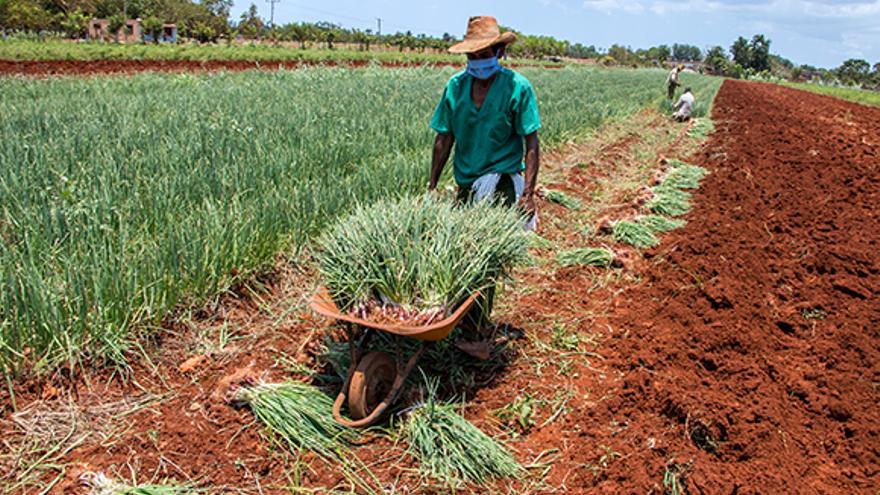
![]() 14ymedio, Madrid, 3 November 3, 2023 — The authorities of Alquízar, in Artemisa, admitted what their inhabitants had been complaining about for months: the food sovereignty plan is a failure, and they so informed the vice president, Salvador Valdés Mesa, who attended a meeting where the production problems were enumerated.
14ymedio, Madrid, 3 November 3, 2023 — The authorities of Alquízar, in Artemisa, admitted what their inhabitants had been complaining about for months: the food sovereignty plan is a failure, and they so informed the vice president, Salvador Valdés Mesa, who attended a meeting where the production problems were enumerated.
Nor could newspaper El Artemiseño could not overlook the debacle of the local economy, and this Friday the headline asked the question that the officials did not want to ask themselves aloud during their meeting: How much is left for municipal and food sovereignty?
During the “sustained exchange,” Valdés Mesa limited himself to giving orders that will hardly be fulfilled in the province: more rice, corn and sunflowers must be planted to produce oil, raise livestock, replace imports, stimulate the farmers and lower prices.
Meanwhile, in the shops of the province a pound of black beans is already close to 550 pesos, even above the price in Havana. In state markets, beans have been missing for more than a year.
The officials, however, were not intimidated by the data and assure that everything is fine. Marisleydis Domínguez, vice president of the Agricultural Program, proudly announced that food outlets had increased from 16 to 40 in the territory but did not mention what she plans to offer in those premises, when food is barely produced in the fields.
Meanwhile, in the shops of the province a pound of black beans is already close to 550 pesos, even above the price in Havana
The same happened with the mini-industries, where “prices were agreed” — without clarifying whether the population will be able to pay them — but in this case the press itself put an end to the official’s words by saying that “such actions are not yet reflected on the table of the more than 30,000 alquizareños.”
Even so, and with the numbers against him, the governor of the municipality promised that, “for 2024, Alquízar will self-supply with food and vegetables.” How it will do it, in just two months, was not a matter of debate either.
Part of the “agricultural belt” that surrounds Havana, Alquízar has traditionally been a land of cultivation of vegetables and fruits and pig breeding. With its red soil and its flat fertile surface, several of the schools in the countryside that sought to unite teaching and agricultural production were located in the belt for decades. Today, most of those centers are abandoned or converted into improvised homes.
The deep structural crisis of the Island, which has worsened in recent years, has especially hit families who aspire, at least in the current conditions, to be able to pay for the standard products that arrive at the bodega [ration store], since the prices of food in the state and private markets exceed the purchasing capacity of the average salary.
With the beginning of November, residents of several provinces have complained that only sugar and a few pounds of rice have arrived for the libreta [ration book], and the authorities themselves have acknowledged that they cannot guarantee when the rest of the products will arrive.
In the particular case of Alquízar, the situation in which citizens live is even more worrying if one takes into account the wave of violence that plagues the municipality, which has forced neighbors to confine themselves to their homes during the night, for fear of being robbed or assaulted on the street.
The Police recently denied that Alquízar remained in a state of siege and curfew, although several residents insist that curfew is a “recommendation,” while the agents patrol the streets of the town.
Translated by Regina Anavy
____________
COLLABORATE WITH OUR WORK: The 14ymedio team is committed to practicing serious journalism that reflects Cuba’s reality in all its depth. Thank you for joining us on this long journey. We invite you to continue supporting us by becoming a member of 14ymedio now. Together we can continue transforming journalism in Cuba.
